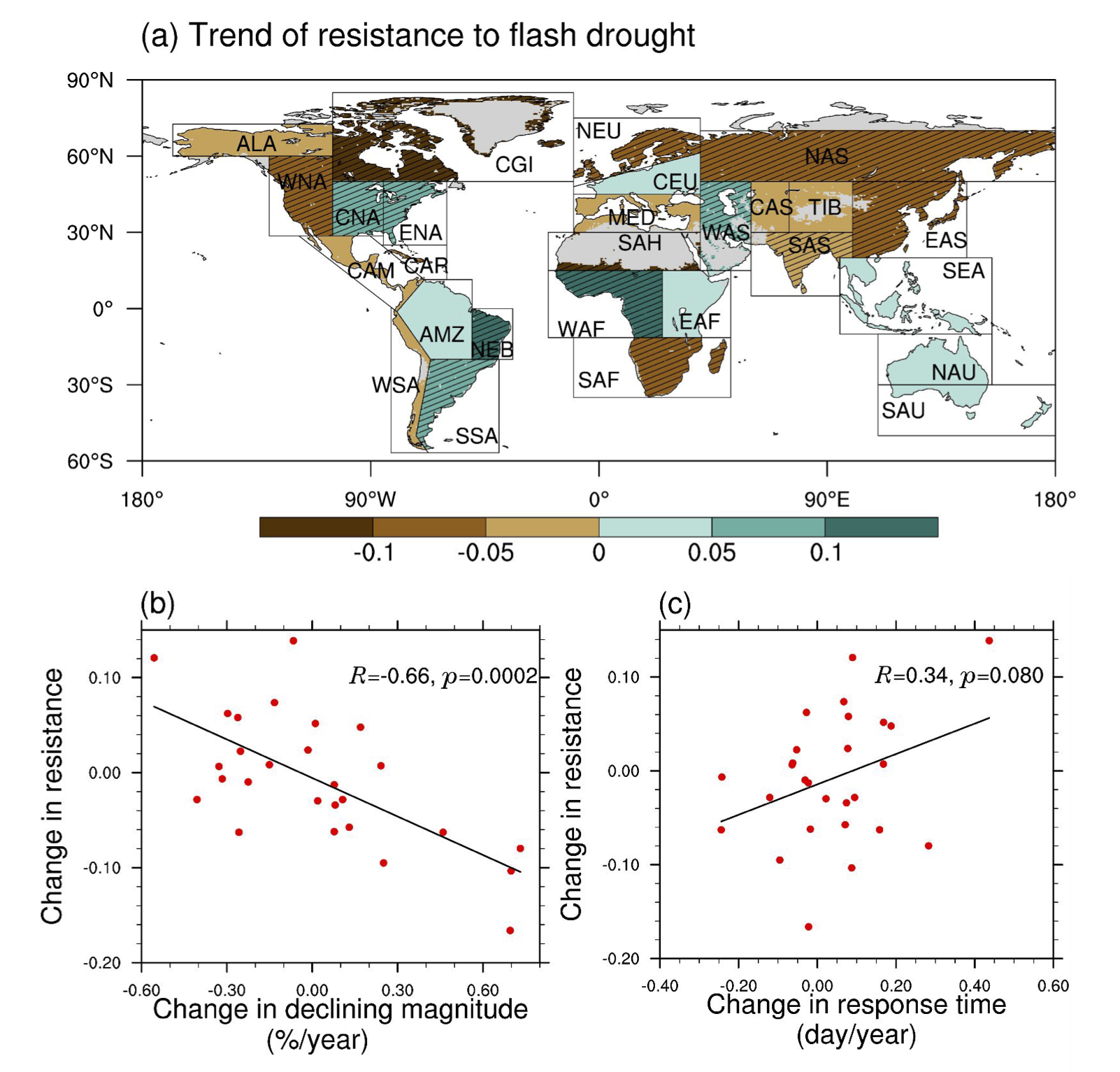Study Reveals Significant Decline in Northern Hemisphere Vegetation Resistance to Flash Droughts Over the Past 20 Years
Date:2025-04-02
With climate change intensifying, the frequency of extreme compound weather events—such as heatwaves and droughts—continues to rise. Flash droughts, characterized by their rapid onset and severe impacts, are becoming a new normal in the 21st century. Events like the 2012 U.S. Midwest flash drought and the 2022 Yangtze River drought have led to substantial declines in terrestrial carbon sinks and crop yields. Assessing ecosystem resilience to flash droughts is crucial for developing adaptation strategies, yet global-scale, long-term studies on vegetation resistance remain scarce.
A recent study, led by Professor Yuan Xing's team in the State Key Laboratory of Earth System Numerical Modeling and Application at Institute of Atmospheric Physics, Chinese Academy of Sciences, in collaboration with researchers from Nanjing University of Information Science and Technology, sheds light on this pressing issue. Published in Nature Communications, the study proposed a flash drought resistance index and utilized multi-source remote sensing vegetation data, hydro-meteorological reanalysis datasets, and machine learning techniques to assess vegetation resistance to flash droughts from 2001 to 2022.

The linear trends of 5-point running average resistance to flash droughts over the 27 IPCC SREX regions.
The findings reveal a significant 27% (±5%) decline in vegetation resistance across hotspot regions, including East Asia, western North America, and northern Europe. This trend is primarily driven by intensifying atmospheric drought conditions, rising temperatures, and increasing vegetation sensitivity to drought stress. Compared to slowly developing droughts, flash droughts pose a greater risk to ecosystems, leading to more rapid productivity declines and shorter response times.
“Our results highlight the growing vulnerability of global ecosystems to flash droughts,” said Professor Yuan. “Understanding these trends is vital for assessing ecological risks and guiding future adaptation strategies.”
The study provides new insights into how climate change is reshaping vegetation resilience and underscores the need for proactive measures to mitigate flash drought impacts.
